(MENAFN- Brazil-Arab News Agency (ANBA))
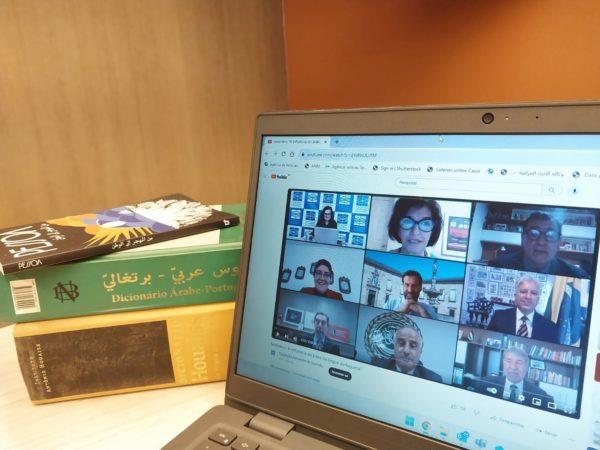
São Paulo – The online seminar“A influência do árabe na Língua Portuguesa” [“The influence of Arabic on the Portuguese Language”] (pictured above) discussed this Tuesday (5) how the contact between the Arabic language and Portuguese helped to provide cultural rapprochement and the development of trade between Brazil and Arab countries, resulting in the adoption of words, slang, and expressions. The meeting was promoted by Brazil's Representative Office to Ramallah, Palestine.
Opening the event, the vice president of Marketing & Communications of the Arab Brazilian Chamber of Commerce (ABCC), Silvia Antibas, noted the Portuguese language is“vivid, colorful, and diverse.” She stated the goal of the meeting was to increase the historical and cultural ties uniting Brazil and Arab countries.
The president of the ABCC, Osmar Chohfi, observed contact between Brazilians and Arabs goes beyond the cultural field; however, from there, doors have opened to that advance, for instance, through diplomacy and trade:“Relations in the political field are sound, and we achieved a significant increase in exchanges between Brazil and Arab countries in different sectors. In 2022, trade between Brazil and the 22 Arab nations reached USD 32 billion, which makes the Arabs some of Brazil's leading partners in foreign trade. Brazil is important for them in terms of food security,” he said.
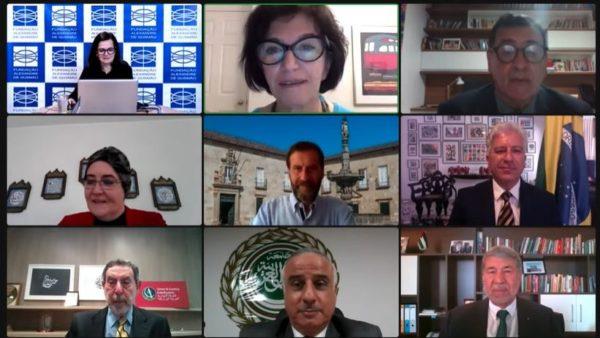
The bond between languages was the subject of the online seminar
The seminar's creator, ambassador Alessandro Candeas, who heads the Brazilian Representative office to Ramallah, said Arab culture contributes to the richness and diversity of Brazilian culture and is a bridge between peoples.
This seminar is part of one of the most significant projects of the Brazilian office in Palestine: Building a scholar network between the two countries linking universities.“We will launch the Brazil-Palestine Institute for Advanced Studies in December, basically a network of Brazilian and Palestinian universities,” he said. According to Candeas, the Palestinian university Al Quds and the International Cooperation Group of Brazilian Universities (GCUB), with the participation of the University of Brasília (UNB), Federal University of Rio de Janeiro (UFRJ), and University of São Paulo (USP), are expected to join the project.
In his lecture, the Arabic professor of UFRJ, João Baptista Vargens, recalled the influence of Arabic on the Portuguese language in Brazil resulting from the encounter between Brazilians and Arab immigrants in the late 18th and early 19th centuries.“Linguistic borrowings come in two ways: Through languages and cultures in contact, in personal encounters, or through cultural borrowings, which occurred, for example, in the first half of the 20th century with Gallicisms, words coming from French between different languages, due to the cultural strength of France. In Portuguese, they were in-person encounters,” he said.
Professor at the University of Minho, in Portugal, António Lázaro presented elements of Arab and Islamic culture that influenced Iberian culture and left legacies until 1249 when the constitution of the Portuguese territory in its current shape was determined.“Influence quickly spread to the most diverse economic areas, in what was the urban fabric of countless towns and cities in Portuguese territory, administration, war, culture, and science,” he said.
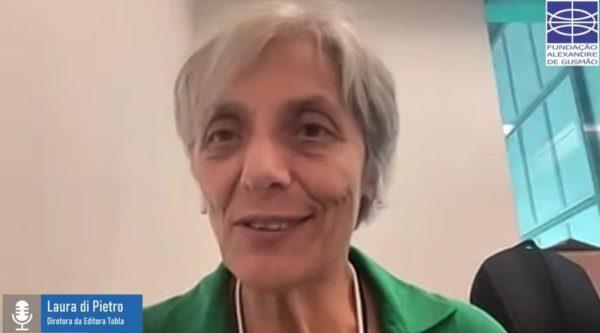
Di Pietro: Tabla publishes Arab authors
Arabic is also present in the daily lives of Laura di Pietro and Ana Cartaxo, founders of Editora Tabla, which publishes Arabic literature in Brazil.“We started with the goal of bringing a new vision with a more authentic narrative. We were eager to bring literature; it was a bridge to debate and listening,” said di Pietro.
To achieve this objective, the founders of Tabla traveled to Arab countries, visited the Sharjah International Book Fair (SIBF), and sought to meet authors, editors, and literary agents.“We didn't want to make the bridge via Europe to have access to literature; we wanted to have direct contact; that was very good because, over the years, we created partnership and trust,” she said.“It's a daily challenge, but we are delighted and optimistic with the path this project can take and progress from,” said di Pietro.
The president of the Alexandre de Gusmão Foundation (FUNAG), ambassador Márcia Loureiro, recalled the Arabic language“not only enriches our vocabulary but connects our people” by symbolizing the“intertwining” of Brazilian and Arab cultures.
The ambassador of Palestine in Brasília and dean of the Council of Arab Ambassadors in Brazil, Ibrahim Alzeben, noted it is necessary to encourage new generations to learn Arabic so this initiative brings“fruits in the future.”
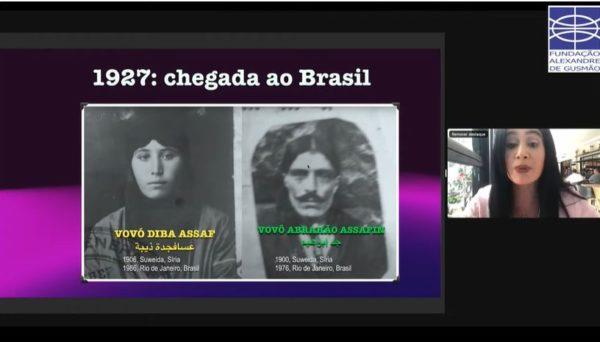
Diplomat Asaf told her family story
Diplomat Cláudia Assaf, who works at the Brazilian Embassy in Oman, recalled her admiration and desire to learn Arabic as a child when living with her Arab grandparents.“When traveling through Syria, I was able to observe the different dialects used within the country itself,” she said. Professor Shatha Jarrar, a specialist in teaching Arabic to non-native speakers, spoke about professional experiences and language teaching.“An Arab person, when learning Portuguese, notices the existence of several Arabic words in the vocabulary,” she stated.
The head of the Arab League Mission to Brazil, Qais Marouf Kheiro Shqair, stated in his presentation that Arabic has over 600,000 words and ramifications in other languages.“Ties between Brazil and the Arabs are historic; however, a look at current developments in the international relations scenario leadsto use what we have to promote relations to a higher level,” stated Shqair, citing as an example the recent expansion of the BRICS group (initially made up of Brazil, Russia, India, China, and South Africa) with the invitation to six new countries, including the Arab nations Saudi Arabia, the United Arab Emirates, and Egypt.
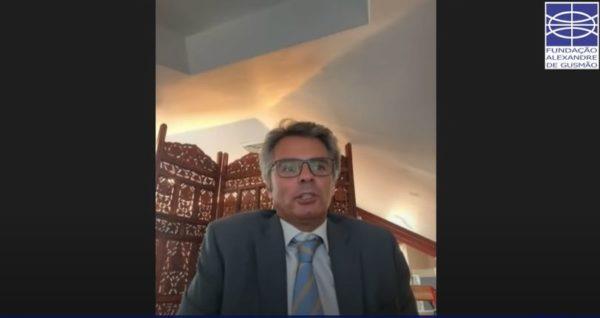
Nascimento spoke about the Arab influence
The head of mission of the Portuguese Representation Office in Palestine, FrederNascimento, noted the theme of the seminar is“of the utmost importance for [his] country” as it reflects the influence and teachings left by the Arabs and Muslims in the Iberian Peninsula and, later, the legacy left by the Portuguese from its development.
The event had the support of the ABCC, the Portuguese Representation Office in Ramallah, GCUB, publishing house Tabla, FUNAG, the Brazilian Ministry of Foreign Affairs, and the Brazilian Federal Government.
Translated by Elúsio Brasileiro
Isaura Daniel/ANBA
Reprodução
Reprodução
Reprodução
Reprodução
The post Arabic, Portuguese: Similarities beyond language appeared first on Agência de Notícias Brasil-Árabe .